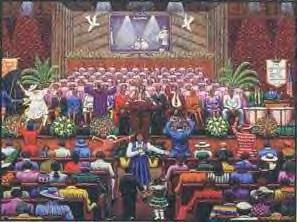INTRODUCTION
“Do you promise to tell the truth, the whole truth, and nothing but the truth?”
This question is asked thousands of times daily in courtrooms across American and is familiar to most as a reasonable standard by which those who are seeking to get to the truth of a matter can reach their objective. This question is signi-ficant in its 3-part injunction to:
- Tell the Truth – Convey only the facts concerning a thing and/or situation.
- Tell the Whole truth – In a forthright manner, tell everything you know of a situation, willfully omitting nothing.
- Tell Nothing but the Truth – Place no slants or ambiguous insinuations of any kind on the information in an attempt to modify the truth.
It is clear in this comparison that the components of this question are based squarely upon the same standard of integrity required by the Word of God. This is understandable when one considers the fact much about American jurisprudence is based upon the Word of God.
Swirling below the surface of whatever lessons learned during each Sunday morning service, and spoken privately from congregant to congregant throughout the week is a stealthily held, but church wide controversy. Like dirty little secrets, questions are quietly asked by people seeking anonymity in their queries, lest they suffer the wrath of their congregations at large for challenging accepted dogma.
“Is tithing a Christian requirement?”
“Do I need my Pastor to hear from God?”
“Do I have to go to join a church?”
These are but some of the issues that are spoken, but not spoken by Christians nationwide in our society today. That these questions go biblically unanswered by Pastors and church leaders today is a crime of the highest theological order, but yet is understandable considering the fact that these same individuals are the direct benefi-ciaries of the intentional ignorance left to fester over these issues. This is what I have come to refer to as “Churchianity.”
Churchianity can best be defined as “Consensus Christianity.” It is that phenomenon by which church dogma becomes more important than Christian doctrine solely because the majority says so. It is that point of theological vio-lation where attitudes of arrogance, rather than exhaustive study and sound biblical exegesis becomes the determining factor for what truth really is; All of this taking place over the quiet objections of those who are unlearned yet reasonably sense that something is terribly wrong with this behavior, and to the benefit of those learned enough to reasonably know better than to participate in this activity.
The intentions of this writer, by means of this work, is to expose these unfruitful works of darkness for what they really are; vain traditions of men by which the Word of God is both diluted and/or discarded as the canon of Christian service, and by which proponents of Churchianity in leadership rob God of his people in order to make servants for themselves.
Finally, Dr. Walter Martin, founder of the Christian Research Center, used to say;
"Controversy for the sake of controversy is sin. But controversy for the sake of truth is a divine mandate."
It is in the spirit of this quote that I approach this work.


